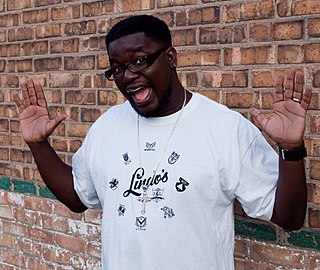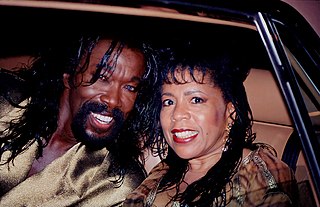A Quote by Curtis Jackson
When I'm actually creating music, I try not to listen to the hip-hop records that are going on, because I think, subconsciously, we steal from each other.
Related Quotes
Even though hip-hop started as a battle format, different artists appeared on each other's records or hung out in the same clubs, supporting each other. That was a profound influence. Also, hip-hop, to me, represents limitless possibility. Hip-hop is always evolving. People say, "Oh, it's a very commercial thing, it's too R&B." But in six months, a record is gonna come out that will completely change that.
In this time, we incorporate money and media, and it's split up like apartheid, where when you say "hip-hop," you think just rap records. People might have forgot about all the other elements in hip-hop. Now we're back out there again, trying to get people back to the fifth element, the knowledge. To know to respect the whole culture, especially to you radio stations that claim to be hip-hop and you're not, because if you was a hip-hop radio station, why do you just play one aspect of hip-hop and rap, which is gangsta rap?
You have a lot of educating to do hip-hop wise in Europe. When you tour, when you go out there, most of the people that come see you at the venue listen to a lot of different kinds of music, not only hip-hop; they're not heads. From time to time you're going to do a little concert in front of three or four hundred people that are only hip-hop heads and they're going to understand and know all about the gimmicks and the swagger but the rest of the people are just regular European people that listen to pop [or] rock & roll.
My definition of hip hop is taking elements from many other spheres of music to make hip hop. Whether it be breakbeat, whether it be the groove and grunt of James Brown or the pickle-pop sounds of Kraftwerk or Yellow Magic Orchestra, hip hop is also part of what they call hip-house now, or trip hop, or even parts of drum n' bass.
I think I can see people wanting to hear more music-music now as opposed to all hip-hop. You know, which I have nothing against hip-hop. I think some of it is really good. But on the other hand, some of the real great artists are just being lost because they're not getting the airplay or anything to make them inspired to record again.
I think that people have been claiming hip-hop as being dead since the moment it started. I think there are people - and I can be included in that category sometimes - that get frustrated feeling like maybe the industry has handcuffed itself, or trained its artists to do or think about music in a way that classically hasn't led to the greatest records in hip-hop.


































